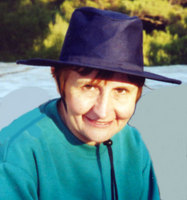 Every day we hear news of ethnic discrimination somewhere in our world. The worst atrocities are frequently perpetrated between those who have differing understandings of the same faith. History is littered with examples, Northern Ireland, Rwanda, and Iraq among the most recent. Such behaviour is the end product of a failure to recognise our shared humanity. Even those of us who do not resort to violence can tend to be suspicious of those who have different origins and different ways from us.
Every day we hear news of ethnic discrimination somewhere in our world. The worst atrocities are frequently perpetrated between those who have differing understandings of the same faith. History is littered with examples, Northern Ireland, Rwanda, and Iraq among the most recent. Such behaviour is the end product of a failure to recognise our shared humanity. Even those of us who do not resort to violence can tend to be suspicious of those who have different origins and different ways from us.
Today’s gospel story invites us to reflect on the shared humanity and potential goodness of all people. It continues last week’s focus on the saving power of faith. Just four Greek words make up the most telling sentence in the story: ‘And he was Samaritan!’ A new element has entered into the narrative: faith is not the sole preserve of the Jewish people. A despised half-Jew can have faith, faith buried deep within and actively at work like the life in the mustard seed.
Jesus is approached by ten lepers in a village in border territory. All have been excluded from participation in village life on account of their skin disease. All beg for inclusion, expressed in terms of mercy ( eleos). All follow the prescription of the Law of Moses to show themselves to the priests (Leviticus 13-14). All are declared ‘clean’. Only one turns back, praises God in the market place, falls at Jesus’ feet and thanks him. Readers do not know to this point whether the village and its inhabitants are Galilean or Samaritan. They only know that the village is situated in the region between Galilee and Samaria. Now the shocking truth is revealed: one is a Samaritan, doubly marginalised as a ‘foreigner’ or ‘stranger’ and it is this one alone that gives thanks to Jesus and honour to God. This one alone receives the now familiar affirmation: ‘your faith has saved you’. Jesus tells the Samaritan to rise up and continue on his way, on his journey of faith. The other nine are healed, presumably because they too have some limited faith, but they have forgotten the source of their healing and abandoned the journey to life.
When suffering tests our fidelity, we might find inspiration in the unwavering faith of Dr Mohamed Haneef who, in the face of exclusion, can thank God and place his trust in the words of the Qu’ran: ‘Truth will come out and falsehood will vanish and falsehood is forever to be vanished.’ The measure of our faith, however, is probably our capacity to acknowledge the Source of our well-being and give thanks for the blessings that come our way.